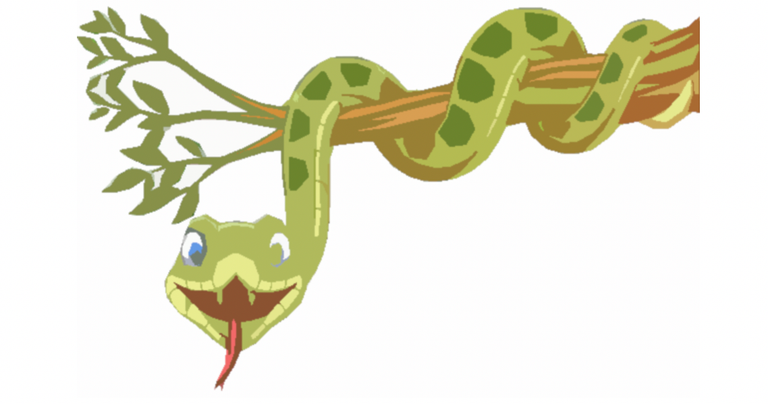What is it be like to be wise in life? How do I respond to my situations—the ones that come like turbulent surprises —in a wise manner?
At a young age, I was always told that being smart is a wonderful trait to have. Intelligence, smartness, or cleverness are traits that are highly valued because that make a person be seen as someone with so much knowledge. I rarely hear people talking about being wise or having so much wisdom.
Just recently, I have started reading this book Big Ideas for Curious Minds: An Introduction to Philosophy a work by The School of Life, Anna Doherty, and Alain de Botton. It's actually a children's book, I came across this book from a professor in our university whom I looked up to as a teacher, scientist, and as a parent. His daughter was reading this book and he shared a chapter of this book that talked about why we procrastinate. The book creatively talks about a lot of things in life as thought by the famous philosophers we've known in the past. On the introduction and the first chapter, I have already learned so much that I'd like to share in this post.

Philosophy is a very interesting subject to study, its literal meaning is the love of wisdom. I guess I missed the opportunity of learning about the beauty of this subject when I took it as a general course during college. I got bored and I just worried about passing the course. Upon reading the book, I've come to realize that Philosophy is not just a subject taught in the universities, it's a teacher to everyone who's receptive to wisdom.
And going back to my questions, what is it be like to be wise in life? How do I respond to my situations—the ones that come like turbulent surprises —in a wise manner? There were times in my life when suddenly, I would face circumstances that are simply upsetting. Like waking up to a morning, looking forward to drinking an iced coffee. After making coffee that suits to my liking, I'd check the freezer just to see that there's no ice available. I know it's kind of petty but I had really moments that I got upset just because there was no ice to use for my coffee. An unwise response to this situation would be to blame it to the people I live with, why is there no ice in our freezer?! Or I could choose to be wise and remember that it's just a coffee, I could still drink a cold beverage once I make ice or buy ice from the store.
In the book, being wise was defined as being sensible, kind, calm, and accepting of how life can sometimes be.
That's just the tip of the iceberg, I had moments in life that are far more frustrating and disappointing. But when we embrace the teachings of Philosophy we can be wise in facing the problems in our lives that we don't have control of and we can't do much about.
We may not change our situations but we can choose the way we respond to them.
Have you been asked of these questions: Do you know yourself well? or By how much do you know yourself? Those are puzzling questions, something you won't hear from someone you're meeting for the first time or from someone you're just casually friends with. If I'd be answering those questions, I might say "Well, of course, a hundred percent sure, I know myself!". It turns out, as pointed out in the book, I might not know about myself, especially the important things like my feelings. And that it's now just me, other people have difficulty in understanding their feelings too. Is that right for you? Because for me, it is. There are times when I can't clearly describe why I'm feeling what I'm feeling.
The book says that it's a funny thing about how the brain works. Apparently, my brain is very good at noticing that I have a feeling. But it is not so good at seeing why I feel that feeling.
In my work, I have moments when I'd feel being upset very strongly, like I would just want to leave my workplace behind and start a new life somewhere else. Most of the time, those feelings would come unannounced and demanding to be felt. It's like I'm wired to welcome and embrace that upset feeling without thinking about how it came to be. After being mentally and emotionally exhausted about it, with long hours of thinking, it would be clear to me that I had a very rough day in work. Little details that went passed such as attending through a lot of meetings, not being able to do the right step in my task, or someone who was rude to me. Those little details are the root causes of my upset feeling; and my brain just simply doesn't notice it instantly.

A powerful illustration was used in the book, a picture of a long snake hanging down from a branch of a tree with the tailed curled round that it stays hidden from your sight. That head of that long snake is like the upset feeling we feel and the real reason why we are upset is the tail that we can't see instantly.
A good practice that we can do is to ask this question: Where is the tail of this feeling? What branch is it hanging from?
The illustration and the questions laid out was an eye opener for me. My brain is clueless to my feelings. If I won't carefully and patiently look out for the root causes of what I'm feeling, I would be overwhelmed and defeated with the upsetting situations I'd face. This was Socrates idea, to know myself as I go on with life. The better I know what I'm feeling, the more easily I can explain what I'm going through.
Processing our feelings may not look like a beautiful picture, it may expose our thoughts and feelings. But it will clear our way as we go through life.
Congratulations! This post has been upvoted by the @blurtcurator communal account,
You can request a vote every 12 hours from the #getupvote channel in the official Blurt Discord.Don't wait to join ,lots of good stuff happening there.